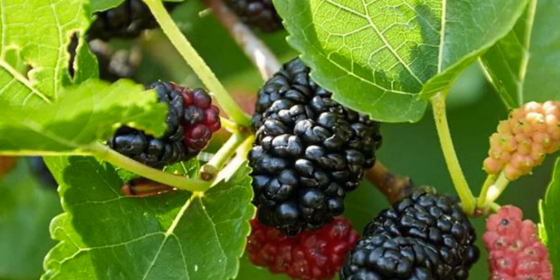Morus nigra
Morus nigra
Couldn't load pickup availability
Common Name:
Black Mulberry
Description:
Morus nigra, commonly known as Black Mulberry, is a long-lived, deciduous fruit tree prized for its sweet, tangy, and highly aromatic black berries. Native to Western Asia, it has been cultivated for centuries for both its delicious fruit and ornamental value. This medium-sized tree features a broad, spreading canopy with rough, heart-shaped leaves that provide excellent shade. In spring, small greenish-yellow flowers appear, followed by deep red to black berries that ripen in summer. The fruit is highly nutritious, rich in antioxidants, and enjoyed fresh, dried, or used in jams, desserts, and wines. Black Mulberry thrives in full sun and well-drained soils and is relatively drought-tolerant once established. It requires minimal maintenance, though occasional pruning helps maintain shape and improve air circulation. In Melbourne's climate, it performs well in backyards, orchards, and larger gardens, offering both aesthetic and edible benefits.
Form:
- Tree - Medium
Mature Size:
- Height: 8–12 metres
- Width: 10–12 metres
Aspect:
- Full Sun
Flowering:
- Flowers in Spring
Flower Colour:
- Greenish-yellow (Inconspicuous)
Key Attributes:
- Edible Fruit
- Drought Tolerant
- Shade Providing
- Bird Attracting
- Suitable for Home Orchards
Toxicity:
- Unripe fruit and milky sap may cause mild stomach upset if ingested.
- Foliage may cause allergic reactions in some individuals.
Companion Plants:
- Figs (Ficus carica)
- Pomegranates (Punica granatum)
- Citrus trees
- Grape Vines (Vitis vinifera)
Note: Black Mulberry is slower-growing than White Mulberry (Morus alba) but produces superior fruit in both flavour and texture. The berries can stain pavements, so consider placement when planting. Regular watering during fruiting season enhances berry production and quality.

Enter Your Postcode Below & Click 'Check' To See Delivery cost To Your Area
- Choosing a selection results in a full page refresh.
- Opens in a new window.

